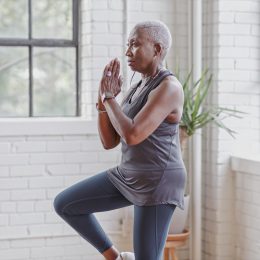Fitness and recovering from injury

Exercise is good for your health, both mentally and physically. We all know that. It helps prevent injury, lowers your risk for heart disease, Alzheimer’s, depression and some cancers. But sometimes you can’t avoid injury or other severe illness. You can be the fittest person in the world, and you may still injure yourself or suffer a debilitating illness. So if something does happen, can exercise still help you? Yes! Fitness and recovering from injury are closely aligned.
Fitness equals faster recovery
A study published in the Annals of Internal Medicine followed more than 1,600 sedentary individuals between the ages of 70 and 89. The participants had functional limitations but could walk 400 meters. Half of the participants started a walking and strength and balance training program. The other half participated in health education. The group that exercised spent 25 percent less time with a major mobility disability (MMD) than those who merely had health education.
What does this mean, exactly? Physical activity can help prevent MMD, but if it still occurs, the recovery is quicker. It is important to take measures to prevent injury, but accidents and life happen. When something does happen, exercise helps speed up the recovery process, so you spend less time down. When adults are actively engaged in a physical activity program, they strengthen their bodies to bounce back quicker from an injury or even an illness.
In a 2016 Time article, Dr. Thomas Gill, a professor of medicine at Yale University School of Medicine and lead researcher, said the results demonstrated physical activity helps sustain benefits over time. “The benefit wasn’t just limited to preventing initial onset of disability but was also effective in promoting recovery after a disability,” says Gill. “Then, once the recovery occurred, the intervention was effective in preventing subsequent episodes of disability.”
Even if you have an illness or injury, you shouldn’t quit exercising completely. You will probably need to scale back the activity or modify your routine, but staying at least moderately active will help. Of course, always remember to listen to your physician before starting an exercise program.
How does exercise help in recovering from injury?
Exercise is good for the heart; that’s a commonly known fact. When you are active and moving your body, your cardiovascular system changes biochemically. It essentially begins to heal itself. Even moderate physical activity has been shown to improve heart health.
Subscribe to our newsletter
It's quick and easy. You could be one of the 13 million people who are eligible.
Already a member? Click to discover our 15,000+ participating locations.
Follow Us
Working out also increases muscle and bone density, so if an injury occurs, the body is more equipped to handle the stress. Strength training helps the body regenerate itself.
Inflammation can also be overcome with regular exercise. Inflammation is an underlying cause of many chronic issues and injuries but regular exercise works to decrease the protein that causes inflammation. Try adding activities known to relieve stress, like tai chi and meditation-based yoga to reduce and prevent inflammation. Try a SilverSneakers® class at a gym or find a SilverSneakers FLEX® location near you!
Physical activity helps prevent injury and many serious illnesses, including heart disease and depression. But if you still experience any of these, exercise can also help you recover quicker. Those who exercise spend 25 percent less time with major mobility disability than those who don’t. It is never too late to start. Even moderate activity helps. So what are you waiting for?! Get out there and move your body.




